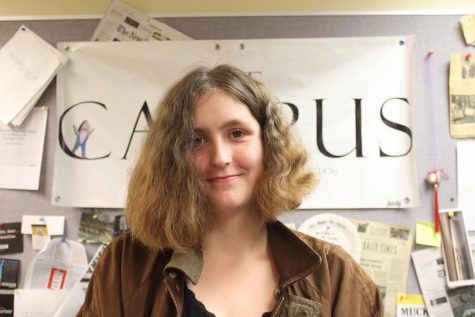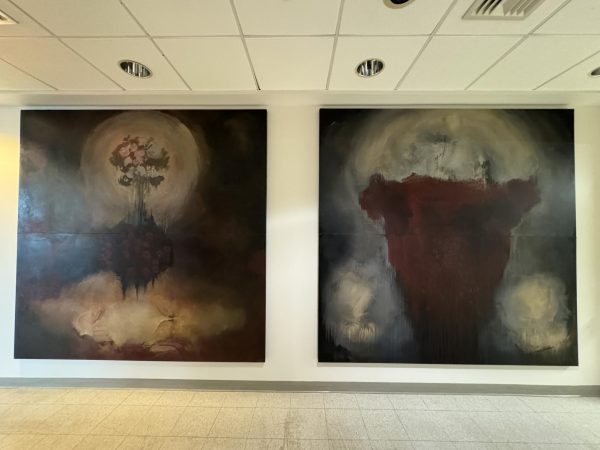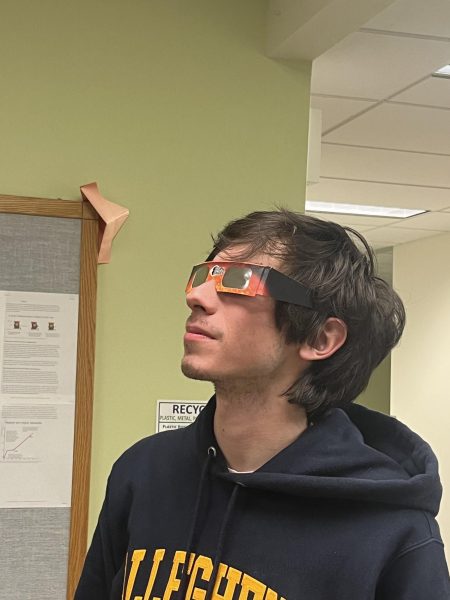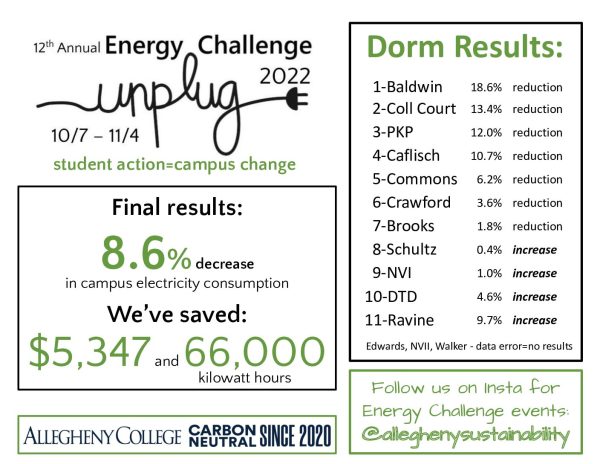Celebrating women in STEM
During Associate Professor of Physics Adelé Poynor’s time at the University of Illinois Urbana-Champaign, there was only one women’s restroom in the entire three-story physics building. To make matters worse, urinals took up most of the room.
“The differences in how I’m treated as a woman in STEM is constant — like the noise electricity makes,” Poynor said. “You don’t notice it until it’s gone or you think about it. I’m constantly having a little bit of a headache.”
In the United States, science, technology, engineering and math are fields that have historically been pursued by men. As a part of Women’s History Month, STEM professors at Allegheny College shared their experiences navigating these male-dominated fields and gave advice to young women hoping to make their mark in these fields.
“I’ve lost track of the number of times I’ve had to file complaints or go with students when they file complaints against their professors and classmates for misogyny,” Poyner said. “I forget how many times I’ve been called a b—- in class and on assignments. I forget how many times I have had my poster that’s about ‘celebrate women in physics’ vandalized. I’ve had people turn in assignments with boobs drawn on them.”
Similar treatment toward women in STEM is all too common. Both as students and professors, women in STEM fields often face discrimination in the classroom.
For Associate Professor and Chair of Computer Science Janyl Jumadinova, the discrimination began early on, back in high school, with her introduction to computer science in a programming class. In this course, her instructor would work with the boys and tell the girls to copy what they were doing. While she enjoyed the subject, this experience put Jumandinova off of the idea of computer science for a few years.
Jumadinova began college with the thought of pursuing a career in marketing, not computer science. However, she was once again drawn to programming, finally finding a setting to engage with her passion.
Despite being in this new environment, professors continued to be an issue for Jumadinova. She described classes as “hit or miss” depending on the instructor.
“I went to take one course called data structures and the instructor was just so horrible that the first week he was telling blatantly sexist jokes,” Jumadinova said. “It was just very inappropriate and me and the one other girl that was in the class couldn’t sit through that.”
Much like Jumadinova, science was not always the plan for Associate Professor of Neuroscience and Biology Lauren French. Going into college, French had no idea what she wanted to do. Then, she took a biopsychology course.
“I was hooked right from there,” French said.
During graduate school, French worked with a male adviser in neuroscience who was known to be inclusive and even helped in founding the Women of Neuroscience Group as a part of the Society for Neuroscience Association. While French admired her male adviser, she could not help but notice the lack of female students and professors, only recalling one female professor who had passed away before French attended and another who was not offered a tenure track. In order to survive in her male-dominated field, French began to adopt the habits of several men around her.
“I realized if you want your voice to be heard for whatever reason — whether it’s a personality or a gender thing — you have to be prepared to dig in, even if you’ve been accustomed to taking your turn,” French said. “That sometimes you have to fight for that position.”
Although Poyner noted that the educational treatment of female-identifying students has improved in recent years, the electric buzz of misogyny still has not gone away.
“There’s just been sort of constant low-level assumptions that I’m not good enough,” Poyner said. “When I first started, there was a professor who would say you couldn’t be a physicist and a woman because when you wanted to have kids, you wouldn’t be able to. I had two kids and I was an experimental physicist. He also said that women weren’t generally smart enough to be physicists. Now, instead of blatantly saying things like this, people just think it.”
As advice to students — and especially those who identify as women — in STEM, Jumadinova and French spoke about the importance of building confidence in one’s learning ability and skill set. Speaking about one’s thoughts is important for learning and cooperating, especially in college.
“Take up space,” Poyner said. “Take up space in your classes and in your study groups and whatnot. It’s not going to make you friends, but it will at least help you go through. If you take up space, you’re a lot harder to ignore. And that’s what makes a big difference because for a lot of STEM, to do well, you’re going to need to work with other people.”

Elanor Bonta is a first-year from Shanghai, China. She is majoring in psychology and minoring in biology.








